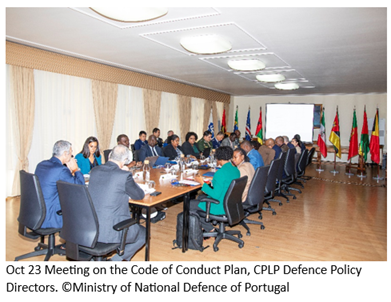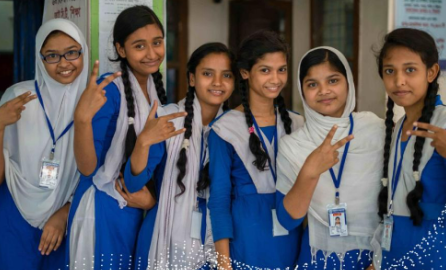Action Plan Community of Portuguese speaking countries to implement the UNSCR on WPS

- Gender marker: G2-Promotes gender equality as a primary objective
- Period of implementation: 2021-2023
- Geographical area: The Community of Portuguese Language Countries (CPLP) that comprises Brazil, Angola, Cabo Verde, Guinea-Bissau, Equatorial Guinea, Mozambique, Portugal, Sao Tome and Principe and Timor-Leste.
- Implementing partners: Portugal
- Link to the project: Plano de Ação
- GAP III’s Areas:
- Women, peace and security
- National processes in the implementation of WPS
Playing a key role in international peacekeeping and humanitarian efforts, Portugal seeks to incorporate, under its third National Action Plan 2019-2022, the gender perspective in the different areas of public policy, particularly in diplomatic, military, security, justice and development cooperation activities. Together with other EU MS, it is also a partner of the Call to Action on Protection from Gender-Based Violence in Emergencies, a multi-stakeholder initiative that aims to mitigate and provide accountability for gender-based violence in humanitarian emergencies.
In alignment with this commitment to reinforce the key role of women on peace and security process and with the engagement of all the Defence ministries of the Community of Portuguese Speaking Countries (CPLP), Portugal has been the penholder in the process of developing an Action Plan of the CPLP to implement the UN Security Council Resolution 1325 on Women, Peace and Security (2000).
This process has been informed by a previous situation assessment/survey and has comprised the set-up of an ad-hoc Working Group within the Defence Component of CPLP.
The Action Plan includes specific actions and indicators based on three objectives. The first of these objectives or pillars aims to promote the participation of women in conflict prevention, negotiation and resolution, in particular in decision-making processes, as well as in the Armed Forces of CPLP Member States. In particular, it includes the promotion of an active role for women in conflict prevention, negotiation and resolution, in peace operations, in humanitarian aid and in the processes of rebuilding societies after conflict. It also comprises actions aimed at ensuring women's participation in decision-making processes related to peacebuilding and in the institutions and mechanisms involved.
The second objective pretends to prevent and protect against all forms of conflict-related violence, in particular sexual and gender-based violence, within the scope of peacekeeping missions, during and after conflicts. Finally, in relation to the integration of the gender perspective in all phases of peacebuilding processes, activities under the third objective aim to ensure the integration of the transversal gender dimension in all phases of peacebuilding and human security processes.
Moreover, since its entry into force some actions already undertaken by some Member-States to implement the Action Plan can be highlighted, such as the elimination of restrictions on the integration of women in the Armed Forces; recruitment actions/campaigns aimed at recruiting women into the Armed Forces; the collection, analysis and dissemination of data disaggregated by sex; the creation of gender focal points in the Ministries of Defence; and the inclusion of WPS in the training of the Armed Forces.
The accomplishment of these objectives and measures along the timeframe of the Action Plan is also intended to address the work of the CPLP's Defence Component and contribute to the SDG “Achieve gender equality and empower all women and girls”.
In this manner, the CPLP Action Plan represents a coordinated effort in the pursuit of the Women, Peace and Security agenda and a good tool for ensuring its accountability. Moreover, within the CPLP community, the Action Plan represents a forum to share lessons learned and best practices in the implementation of this Agenda and to ensure that global commitments are translated into concrete actions.
Also noteworthy is the preparation, by Portugal, with contributions from the other Member States, of a Code of Conduct for the Defence Component of the CPLP on the prevention of and protection against all forms of conflict-related sexual violence (measure 2.1 of the Action Plan). Although the document is still under discussion and is expected to be approved in 2024, do not hesitate to consult this Action Plan of the Community of Portuguese Speaking Countries in more detail!
“The Community of Portuguese Speaking Countries has fostered different collaborations to highlight the active role of women in preventing and mediating conflicts, in peace operations, humanitarian aid, and in the processes of rebuilding societies after conflicts. This has been achieved notably through conducting training actions for women in electoral observation missions and conflict mediation processes. Within this framework, various initiatives or measures have been incorporated into CPLP instruments, such as the 2022-2024 Action Plan of the Meeting of Ministers for Gender Equality and Women's Empowerment of the CPLP, and the Action Plan of the Defence Component of the CPLP. These Plans, by referring to the Implementation of the United Nations Security Council Resolution 1325 on Women, Peace, and Security, represent a significant contribution by the CPLP to the efforts in implementing international instruments in this matter.”
